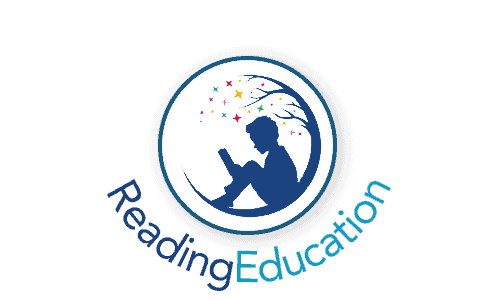Learning to read isn’t merely about reading books. For a child to fully grasp and absorb all facets of learning – reading included – it is vital to develop their ever-growing, sponge-like brains using a vast array of activities, tasks, and games, designed to help their grey matter work more efficiently, and, therefore, more effectively. In short, boosting their overall development is the quickest way to boost reading skills. So, in today’s article, we’re going to furnish you with five fun activities you and your four-year-old can do together to get their highly-receptive neurons firing on all cylinders.
Six Activities To Boost Reading Skills and Development in Four-Year-Olds
#1 – Reading Together
Despite there being a myriad of ways to boost reading and overall brain development, reading books is still the best thing out there; therefore, it’s absolutely crucial to explore books with your four-year-old on a daily basis. The world of books is almost infinite, so encourage your child to choose as many different types of books as possible. Learning to read isn’t just about studying; it’s also about having fun. If something is fun, a child is more likely to want to take part. Period. Of course, there’s no harm in making suggestions or even deciding on certain books. Still, it’s important for your child to have the freedom to choose and understand the responsibility of choosing their reading material. Four-year-old + fun + freedom = accelerated and enjoyable learning.
#2 – Explore The Library
What better place to explore the world of words, books and reading is there than the library? None! Making regular trips with your four-year-old to the library is an exciting way to explore books together. Encourage your child to walk around, look at all the books, and choose ones they’re interested in. Take them to different sections to allow them to make varying book choices, such as fiction, non-fiction, and poetry.
Furthermore, some libraries even host singing or rhyming classes for children of pre-school age, so that’s certainly something to consider also. Is there really any place better to spend a rainy, miserable day than in a library with your little one exploring the thousands upon thousands of books? We don’t think so!
#3 – Sing Number Songs
Singing songs helps children to enhance there reading, speaking, and listening skills; plus, it gives them the opportunity to have fun with words, letters, and numbers. Singing songs that involve counting can help to develop their understanding of numbers, which is closely linked to their undersigning of words – both of which are beneficial for learning to read. There are so many counting songs out there that it’d be impossible to name them all, but here are a handful of our favourites:
– “1,2,3,4,5…once I caught a fish alive!”
– “Ten Green Bottles”
– “Three Little Frogs”
#4 – Cutting and Pasting
Learning how to use scissors is an importune life skill and one that everyone needs to learn, but it’s not the most straightforward of tasks for children, who typically lack the co-ordination and muscle strength to get to grips with it straight away (no pun intended!). Encourage your child to cut out shapes, pictures, and anything else they like (provide you’ve given them permission!), in addition to teaching them how to use scissors safely. Once they’ve mastered cutting out, why not help them create a scrapbook of shapes and pictures? This will help further their development by allowing them to understand how to stick things down. Although this may seem like a very simple task, even the smallest and seemingly insignificant of activities can help to boost your four-year-old’s grey matter.
#5 – Play Dressing Up Games
Imagination and creativity are part and parcel of reading and writing; therefore, it’s highly beneficial to promote these traits in your child, and playing dressing up games is an exceptionally fun way to do this. Dressing up will often lead to assuming roles of characters, acting, and generally being creative and imaginative, which is an effective method for helping your child to understand fiction books and stories.
#6 – Cooking Together
Let’s face it; cooking can be a whole heap of fun…but it can also provide your child with the perfect learning environment. Although cookbooks are too complicated for four-year-old to read and understand without assistance, they are great for introducing children to words and numbers, not to mention showing how words and numbers are used in everyday life and activities. Moreover, actually taking part in the cooking process can help children gain hand-eye co-ordination and may even ignite a passion for creating culinary delights!

